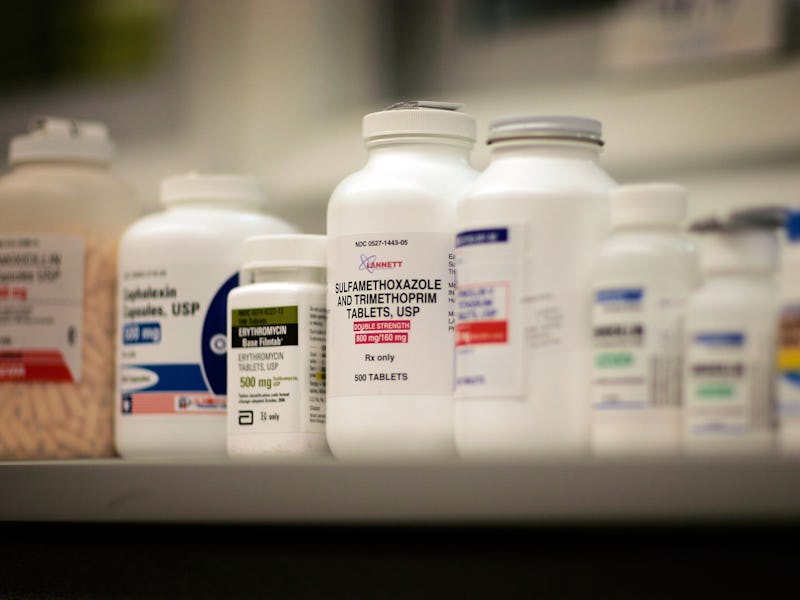Report Says Drug-Resistant Superbugs Could Kill 10 Million People Per Year by 2050
Unless world leaders get their act together soon, we're in serious trouble.

If you were already stocking up on water-wings and pool floaties for our impending doom from global warming, you might want to toss a hazmat suit into your bug-out bag. According to a new study by the Review on Antimicrobial Resistance, drug-resistant superbugs — beefed-up versions of e. coli or other bacteria — could cripple global health infrastructure and kill more people than cancer does by 2050. Of course, we might all be underwater by then, but it doesn’t matter how good you are at swimming if simple antibiotics can’t fight off a ‘roided-out version of a simple bacterial infection.
According to the report, which was funded by the British government, AMR infections could end up costing the global economy more than $100 trillion by the 2050 mark as they ravage the population. The report estimates that AMR infections could kill more than 10 million people per year, worldwide, racking up more deaths than cancer (which killed 8.2 million worldwide in 2012, according to the WHO). In other words, if world leaders don’t get their shit together (literally, in this case, as poor sanitation is a major factor), AMR superbugs could become a global health crisis on an unprecedented scale.
Fortunately, the report has some solutions. Improving public sanitation would go a long way toward fighting the spread of superbugs — cleaning up the water supply of four of the most populous countries in the world — India, Nigeria, Indonesia, and Brazil — could cut the 500 million courses of antibiotics they use per year by 60 percent. But the authors also note that there needs to be a massive public awareness campaign to educate the public on the dangers of AMR superbugs.
This is a doctor treating a drug-resistant staph infection. Trust me, you don't want a drug-resistant staph infection.
Still, primary author Jim O’Neil says we might not be completely screwed if governments act now.
“Although AMR is a massive challenge, it is one that I believe is well within our ability to tackle effectively. The human and economic costs compel us to act: if we fail to do so, the brunt of these will be borne by our children and grandchildren, and felt most keenly in the poorest parts of the world.”
The report says there are several fairly simple things developed nations can do. First, the authors say it would be really great if we stopped pumping livestock full of antibiotics. Second, as the bacteria quickly overwhelm our existing drug supply, world leaders need to make a concerted to fund cutting-edge research into alternative methods of of combating AMR infections. Pharmaceutical companies often face massive imbalances between research and development costs and profits for making new antibiotic drugs, which discourages them from making the innovations necessary to keep up with rapidly-adapting bacteria. The authors suggest subsidies of anywhere between $800 million to $1.3 billion toward pharma companies for every new drug they develop.